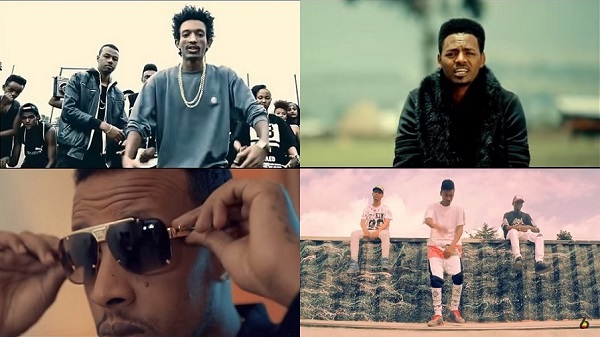
In the short time since its introduction, hip hop has grown due to pioneering MCs such as Algorash, Mad Boys, Abyssinia Boys and Afaris.
By Desta Wegayehu (Music In Africa)
Steeped in history and tradition, the ancient East African country of Ethiopia is home to a growing hip hop culture that gives a voice to talented young people. Hip hop – primarily in the form of rap music – has offered opportunities and changed lives throughout the country. The capital city Addis Ababa was the main entry point for hip hop, with the pioneering artists citing influences such as Tupac, Eminem, Jay-Z and LL Cool J, although the earliest manifestations of contemporary rap date to barely 15 years ago. By one artist’s estimate, about 90% of high-school and college students now identify with this genre.
The rapid influx of the global youth culture has been the cause of consternation among parents and conservative members of society who worry that foreign influences will disrupt traditional values and practices. But Teddy Yo, the country’s pre-eminent rapper, says this is a misconception. “We didn’t steal hip hop from America,” he says. “It came up from our own culture”.
Teddy points to the ancient practice of shilelakerato where warriors would take turns rapping, backed by heavy traditional drum beats before engaging in warfare. “It was essentially battle rap”, he says. The lyrics nowadays generally focus on themes such as the value of hard work and social issues such as poverty, materialism and education. There are, of course, numerous tracks praising the charms of pretty women.
In the short time since its introduction, hip hop has grown due to pioneering MCs such as Algorash, Mad Boys, Abyssinia Boys and Afaris. “Basically, they just took the music from the US and made mixtapes,” Teddy says. “It wasn’t too popular at that time.” Other artists like Faf Crazzy (Lij Michael) and the Gamo Boys skillfully blended traditional beats and instruments into their own unique styles. Although some artists’ lyrics are in English, most rap in Amharic or any of the more than 80 local languages in order to better reach their audiences.
Read the complete story at Music In Africa
——
See also:
- “Erotalehu” Album by Eyob Mekonnen
- The Weeknd Helps U of Toronto’s Ethiopian Language Study
- Mulatu Astatke: 52 Years Doing What He Does Best ― Jazzing
- Aida Muluneh: Between Nostalgia and Future Dreaming (TEDxJohannesburgSalon)
- VIDEO: Photographer Michael Tsageye Aims to Preserve Memories of Ethiopia’s First Capital
